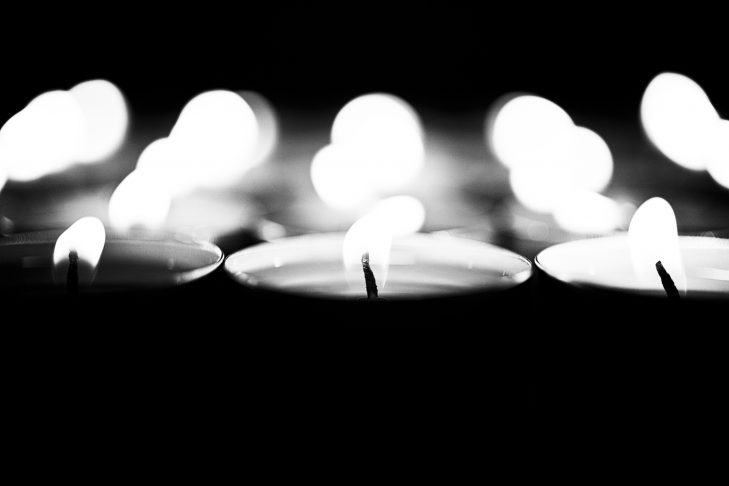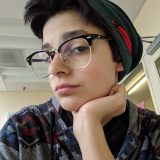When I was in eighth grade, my Sunday school class was entirely dedicated to the Holocaust. This meant that I woke up at 8 a.m. on one of my precious days off, attended services and then sat in a classroom at my synagogue for three hours, gnawing at a bagel while black-and-white atrocities flickered over the outdated TV screen perched on its precarious roller stand. Every Sunday for a year, we lounged in bean-bag chairs and tossed paper balls back and forth while the weight of the past descended from the ceiling like a hydraulic press. This was our normal, a little educational break from the one-dimensional Holocaust jokes we endured at school.
Often, we were chastised for not paying attention, for whispering while hollow-faced grown-ups spoke distantly about waking up in mass graves with their children’s bodies on top of them, about digging broken fingernails into the black earth and clawing their way out. We were disrespectful, disconnected, irreverent. Even at 13, though, I wondered what our teacher wanted from us. Were we supposed to quietly absorb the image of a teenage girl screaming while a dirty tattoo needle pierced her arm? What about a pregnant woman splintering a wooden spoon between her teeth as she tried to give birth silently in a bunk bed at Auschwitz? My Protestant friends cried over “The Passion of the Christ”; I stared through a classmate’s grandfather standing in front of the ark, describing the bombs that decimated his childhood home. What else was I supposed to do?
So much of Judaism is swallowing trauma. Steeped in chicken broth, piled onto a piece of matzoh like pink horseradish, its claws embedded in the cork of a bottle of wine. The mechanical act of breathing while a boot heel digs into your sternum. I drifted through my 13th year part woman, part girl, part carafe of organs. A vessel for my ancestors’ sweat and spit and shattered fingernails.
I swept through college and moved to Boston for grad school three months after finishing undergrad, chasing a varied environment where there would be too many people for anyone to look at me weird. In my 20th-century memoir class, I am the only master of arts. I am also the only Jew.
The class deals in atrocity. Chernobyl, Mao’s China, Stalinism. Intellectuals—always writers, always poets—marched out of their homes and worked to death in labor camps. And the Holocaust. Of 10 books, four are on the Holocaust. Primo Levy is the hardest to read, but I force myself to pry the pages of the paperback apart on the plane to attend my girlfriend’s conversion. Two by the daughters of survivors, sets of parents who collapse and writhe and cajole, whose trauma permeates the pages like oil. I am always angry during discussion, even if I begin placid, even if I imitate the blank stare of my childhood and my classmates. The books cut into me because I see myself and my family there, immortalized in this burnable format.
I have no family that survived the Holocaust. Or maybe I do. Our history has been so thoroughly erased that my bloodline feels more like a charred shrub than a tree. And yet I feel those phantom branches like they’re growing from my own back. The heart of them aches with every new atrocity, a slow-motion meltdown that seeps into the groundwater. A virus.
If you Google “synagogue shooting,” 74 million hits emerge in less than half a second. Suggested searches: synagogue shooting 2018, synagogue shooting 1890, synagogue shooting 304 BCE. Synagogue shootings in every American city with a synagogue to shoot. But I’m out of sadness, or maybe I haven’t gotten there yet. Maybe I’m just now wading into sadness, wetting my feet in it. Maybe it’s just evolved, resting under my anger, waiting for that cover to burn off.
I’m trying, but the grief of the Jewish people is indescribably huge. It’s inherent. A friend once told me that Jewish holidays could be broken into three core tenets: They tried to kill us, we survived, let’s eat! But so many of us don’t survive, don’t make it to the table. Perhaps we drink for them, remember for them. They have just as much of a right to be here as us.



